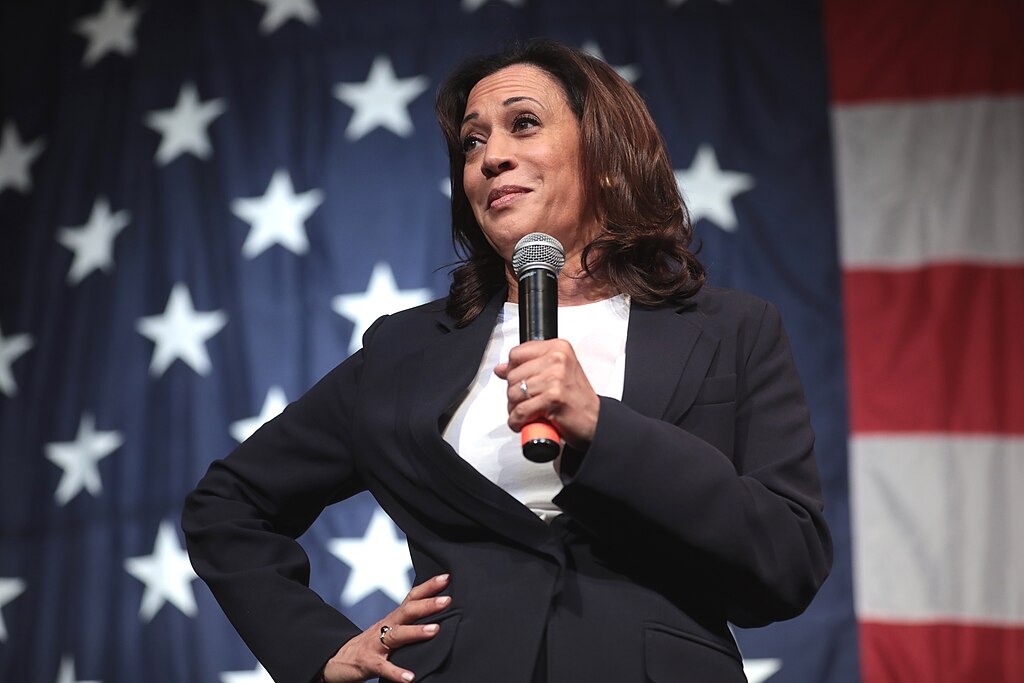Kamala Harris' remarkable political career, which has seen her ascend to the highest echelons of American politics, has long been shadowed by the whispers and allegations that her meteoric rise was significantly aided by her relationship with Willie Brown, a powerful California politician. These allegations, while often dismissed by her supporters, are examined in detail in Peter Schweizer’s investigative work Profiles in Corruption: Abuse of Power by America’s Progressive Elite, offering a deep dive into the dynamics that may have played a critical role in Harris’ career trajectory.
In the mid-1990s, Harris, then a 29-year-old up-and-coming lawyer, caught the eye of Brown, who was then one of the most influential figures in California politics. Brown, who served as the Speaker of the California State Assembly and later as the mayor of San Francisco, was known not only for his political clout but also for his lavish lifestyle and connections to the state’s wealthiest and most powerful circles.
Their relationship, which lasted less than two years, came at a time when Brown was separated from his wife. Despite the brevity of their romance, it had lasting implications for Harris’ career. Critics have pointed to Brown's significant role in securing lucrative positions for Harris, including appointments to state commissions that paid substantial salaries without requiring legislative confirmation. This relationship has led some to brand Brown as Harris’ “kingmaker,” a figure who opened doors to the corridors of power in California politics.
According to Schweizer, Harris' relationship with Brown was not just personal but also highly strategic. Brown’s extensive network of political allies, donors, and influential figures became accessible to Harris, helping her navigate and rise within the political landscape. This connection allowed her to be seen with Brown at high-profile events, further embedding her in the elite circles of San Francisco.
The relationship also reportedly included material benefits, such as Brown gifting Harris a BMW and supporting her career through strategic appointments. These actions, according to Schweizer and other observers, were instrumental in laying the groundwork for Harris' later success, including her election as San Francisco’s district attorney in 2003, and her subsequent rise to state attorney general and U.S. senator.
Despite the end of their romantic involvement, Harris and Brown maintained a professional relationship. Brown continued to be a significant influence in Harris' career, particularly as she made the transition from local to state politics. His support and the connections she cultivated during their time together were pivotal as she challenged and eventually unseated her former boss, Terence Hallinan, to become San Francisco's top prosecutor.
As Harris' political star continued to rise, culminating in her selection as Vice President Joe Biden's running mate in the 2020 election, the narrative of her early relationship with Brown has persisted as a point of both intrigue and controversy. While Harris has often downplayed the influence of Brown on her career, critics argue that his support was a decisive factor in her ascent, raising questions about the true nature of her "bootstrap" journey.
Today, as Harris stands as one of the most powerful women in American politics, the shadow of her early relationship with Willie Brown continues to provoke debate about the intersections of power, influence, and political ambition.



 Trump Signs Executive Order Threatening 25% Tariffs on Countries Trading With Iran
Trump Signs Executive Order Threatening 25% Tariffs on Countries Trading With Iran  Japan Election 2026: Sanae Takaichi Poised for Landslide Win Despite Record Snowfall
Japan Election 2026: Sanae Takaichi Poised for Landslide Win Despite Record Snowfall  Trump Lifts 25% Tariff on Indian Goods in Strategic U.S.–India Trade and Energy Deal
Trump Lifts 25% Tariff on Indian Goods in Strategic U.S.–India Trade and Energy Deal  U.S. Announces Additional $6 Million in Humanitarian Aid to Cuba Amid Oil Sanctions and Fuel Shortages
U.S. Announces Additional $6 Million in Humanitarian Aid to Cuba Amid Oil Sanctions and Fuel Shortages  Nighttime Shelling Causes Serious Damage in Russia’s Belgorod Region Near Ukraine Border
Nighttime Shelling Causes Serious Damage in Russia’s Belgorod Region Near Ukraine Border  U.S.-India Trade Framework Signals Major Shift in Tariffs, Energy, and Supply Chains
U.S.-India Trade Framework Signals Major Shift in Tariffs, Energy, and Supply Chains  Ohio Man Indicted for Alleged Threat Against Vice President JD Vance, Faces Additional Federal Charges
Ohio Man Indicted for Alleged Threat Against Vice President JD Vance, Faces Additional Federal Charges  New York Legalizes Medical Aid in Dying for Terminally Ill Patients
New York Legalizes Medical Aid in Dying for Terminally Ill Patients  Netanyahu to Meet Trump in Washington as Iran Nuclear Talks Intensify
Netanyahu to Meet Trump in Washington as Iran Nuclear Talks Intensify  Jack Lang Resigns as Head of Arab World Institute Amid Epstein Controversy
Jack Lang Resigns as Head of Arab World Institute Amid Epstein Controversy  TrumpRx.gov Highlights GLP-1 Drug Discounts but Offers Limited Savings for Most Americans
TrumpRx.gov Highlights GLP-1 Drug Discounts but Offers Limited Savings for Most Americans  U.S. Lawmakers to Review Unredacted Jeffrey Epstein DOJ Files Starting Monday
U.S. Lawmakers to Review Unredacted Jeffrey Epstein DOJ Files Starting Monday  Trump’s Inflation Claims Clash With Voters’ Cost-of-Living Reality
Trump’s Inflation Claims Clash With Voters’ Cost-of-Living Reality  Trump Says “Very Good Talks” Underway on Russia-Ukraine War as Peace Efforts Continue
Trump Says “Very Good Talks” Underway on Russia-Ukraine War as Peace Efforts Continue  Trump Allows Commercial Fishing in Protected New England Waters
Trump Allows Commercial Fishing in Protected New England Waters  Norway Opens Corruption Probe Into Former PM and Nobel Committee Chair Thorbjoern Jagland Over Epstein Links
Norway Opens Corruption Probe Into Former PM and Nobel Committee Chair Thorbjoern Jagland Over Epstein Links  China Warns US Arms Sales to Taiwan Could Disrupt Trump’s Planned Visit
China Warns US Arms Sales to Taiwan Could Disrupt Trump’s Planned Visit 































